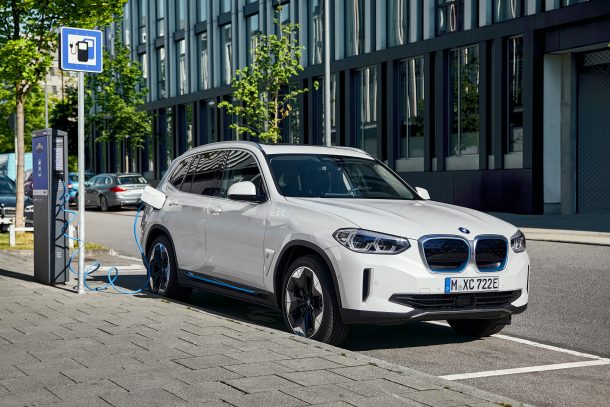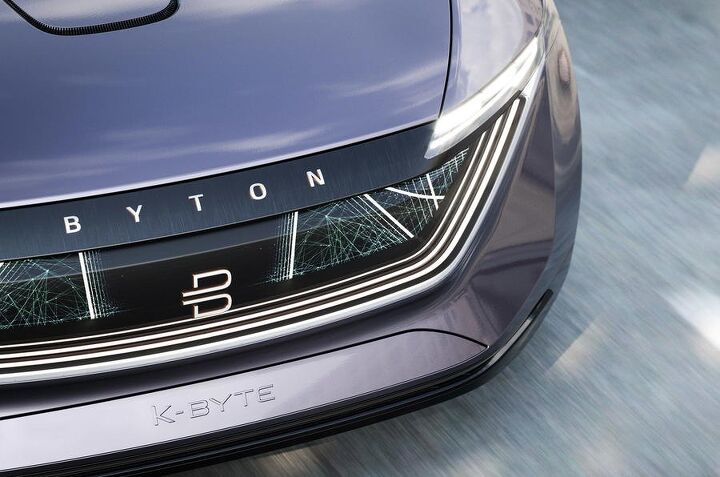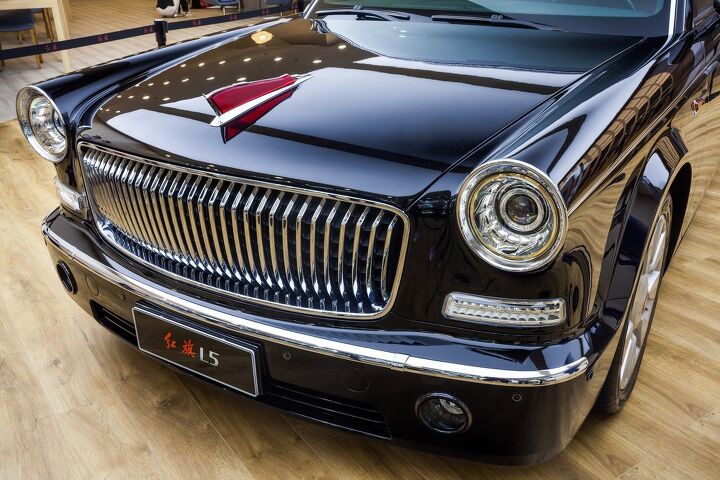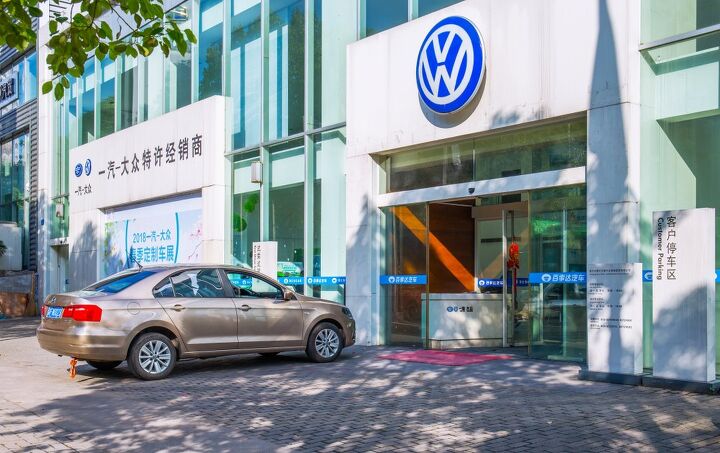#China
Go Big or Go Home: GM Announces EV Offensive in China
Sales of General Motors vehicles sank 15 percent in 2019 — the automaker’s second straight year of annual sales pullback in that once promising market.
Maybe the product was the problem?
That seems to be GM’s thinking. On Wednesday, The General revealed its plan to capture market share in the world’s mos populous auto market with a raft of electric vehicles underpinned by its new modular electric vehicle platform, all powered by the company’s low-cobalt Ultium battery technology.
China's Geely Adjusts End-of-year Outlook
China’s Geely Automobile Holdings reported a first-half net profit drop of 43 percent on Monday, a tumble that forced it to reduce end-of-year targets. As you may have expected, the coronavirus was named as the biggest obstacle it had to overcome, especially in its home country. That left Geely (parent to Volvo, Lotus, Proton, Lynk & Co, Emerald Automotive, London EV and more) revising 2020 volume estimates by 6 percent to 1.32 million vehicles against the 1.36 million deliveries it enjoyed through 2019.
While enduring a bad financial year in 2020 is hardly breaking news for any major automotive manufacturer, Geely is one of many Chinese firms with global aspirations. Its role as Daimler’s second-largest stakeholder and ownership of Volvo Cars (with which it is planning a full merger) arguably makes it the corporation that’s closest to achieving that goal, too. Yet the current economic and geopolitical situation served to undermine its ultimate goal of becoming Asia’s answer to Volkswagen Group.
Geely Still Reportedly Bent on World Domination
China’s Zhejiang Geely Holding Group has its fingers in a lot of pies. Having purchased Volvo Cars from Ford a decade ago for $1.8 billion (a fraction of the price the Blue Oval paid), the brand has focused on scooping up troubled brands with global appeal or creating its own. In 2017, Geely purchased majority stakes in Malaysia-based Proton and UK-based Lotus Cars while attempting to turn its own Lynk & Co into a global brand.
Those are supplemental to its cadre of Asia-focused subsidiaries but no less important to its broader aspirations.
Geely has been exceptionally clear that its ultimate goal is to increase its presence around the world while improving its production capabilities. Its latest strategy involves utilizing new platforms developed for Volvo (which was already sharing architecture with Lynk) for vehicles manufactured in Asia under the Proton banner.
Jaguar Land Rover Now Targeting $3.3 Billion in Cuts
Jaguar Land Rover has increased its savings target for the year to $3.3 billion (£2.5 billion) following a $540 million (£413 million) pre-tax loss for the quarter ending in June. Losses are hardly uncommon within an industry shaken by the pandemic, but JLR went into this year already confronting an uphill battle.
In 2019, the company was deep in the midst of a restructuring plan aiming at $2.5 billion in life-sustaining savings. Unfortunately, the move required the elimination of thousands of positions as it tried to imagine the effects of Brexit and contend with falling sales in its largest markets. That includes China, which the firm assumed would offer continued growth in the months leading up to coronavirus’ big debut and increasing political tensions between the Communist Party of China and United Kingdom.
BMW Debuts IX3: INext, Please
BMW revealed the production version of the iX3 crossover this week, adhering as closely to the 2018 concept as possible. More aerodynamic than your standard X3 and adorned with visual cues hinting at its status as a zero-emissions vehicle, Bavaria’s newest electric seems adequate transportation for those with modest expectations.
But this is supposed to be the first vehicle in the brand’s upcoming product offensive, a strategy aimed at helping it transition into the next Tesla or whatever fantasy scenario corporate leadership has deluded themselves into. Forget the i3 — this is what it looks like when BMW gets serious about electrification. That’s the marketing line being used to stir interest, at least. However, it starts to unravel a bit when you look at the vehicle’s capabilities and planned trajectory.
Plug Pulled: Byton Suspends Production, Plans Reorganization
Chinese electric car startup Byton will reportedly idle production next month as it attempts to reorganize itself. While the coronavirus emerged as a villain in this play, the issues confronting Byton actually seem pretty dire. The company isn’t just idling factories to address a health crisis, it’s shutting things down for six months while it engages in more fundraising and tries to pay what’s owed to employees.
That’ll be tough with no normal income. Byton has already furloughed a large portion of its staff in California and plans to cease all production in Nanjing. While we knew the PRC’s approach to electrification would ultimately result in countless EV startups going under, we didn’t expect Byton to be among them. Slick products, good marketing, and interesting designs made it seem like it could go the distance — now it seems wholly preoccupied with survival.
Tesla Update: Brace Yourself for B-Day
There’s a big to-do coming up in Tesla’s social calendar. Dubbed “Battery Day,” the occasion seems to have something to do with…well, you can probably read.
Battery Day, on which Tesla will presumably storm the beaches of electrification technology, is slated for September 15th — the same day as a postponed shareholder meeting.
Don't Bet on Seeing Chinese Brands in the U.S. Anytime Soon
Over the past decade, regular reports that Chinese automakers were readying a major push into the North American market became commonplace. We started seeing them move out of trade show basements to take up some of the most desirable real estate on the main floor. While some of the product clearly wasn’t yet up to snuff, one could imagine budget-focused products flooding the U.S. and Canada after a few years of polish. However, the last time that seemed like a likely scenario was 2018.
Chinese brands are still trying to break into the untapped North American market; some even have physical office space set up within the United States. However, Sino-American relations have soured dramatically over the past few years, and new financial hurdles have made wrangling a new market extremely difficult.
Price Chopper: Tesla Sinks Stickers As U.S. Factory Comes Back Online
Hoping to reduce the coronavirus pandemic’s strain on its balance sheet, Tesla slashed prices on three of its four models on Wednesday. While the company posted a surprise first-quarter profit last month, no one expects Q2 to be similarly rosy.
Tesla only recently fired up its Fremont, California assembly plant amid a cloud of threats and a lawsuit targeting Alameda County officials. With sales severely hampered by both the weeks-long shutdown and state-level stay-at-home orders, getting new Teslas out of the factory and into driveways becomes even more important than it was before. Perhaps consumers respond well to lower prices…
Better Batteries, New Corporate Identity Coming to Tesla?
Tesla plans to introduce a cheaper, longer-lasting battery in Model 3 sedans produced for Chinese customers. With the industry awaiting the next breakthrough in battery tech, and the hope that such a development will bring electric vehicle pricing closer to internal combustion units, this is a big deal.
Initial data also seems to suggest these cells plan on delivering — offering more affordable production options and a million-mile lifespan (a claim always worthy of a grain of salt). According to those familiar with the plan, the batteries also have the capability to be extracted from cars to serve as home-energy solutions. Battery waste is going to become a serious problem once EVs enter into the mainstream. Tesla’s new plan might fail to address the endgame, but it could prolong their usefulness and buy additional time before they have to be recycled or stored at specially designated waste containment areas that can handle hazardous materials.
China's Auto Market Revisited
Chinese auto sales grew 4.4 percent last month vs a year earlier, rising to 2.07 million vehicles, according to tabulations released by the government-backed China Association of Automobile Manufacturers (CAAM) on Monday. This is actually better than its preliminary assessment suggested, with the new figure helping put an end to a 21-month slump of declining automotive sales.
Unfortunately for the region, it doesn’t seem to be indicative of a full recovery. In its report, CAAM noted that the rebound may be only temporary. Last month’s figures were primarily elevated by commercial vehicles, which saw record growth at 32 percent (year over year). Passenger vehicles also saw their numbers improve from the month prior, but they still down 2.6 percent in April. The improvement is widely seen as the result of backlogged orders that couldn’t be completed during the most prohibitive period of the pandemic, as well as the Chinese Communist Party ordering more work vehicles to stimulate the economy.
Did Chinese Auto Sales Recover Last Month?
The China Association of Automobile Manufacturers (CAAM) reports that April was healthier than expected, resulting in an estimated 2 million new vehicle sales. This would be the first time in a couple years the market has seen any monthly growth, with CAAM taking to the Tencent-owned WeChat to announce a single-percent gain over April 2019.
Considering the pandemic is anticipated to suppress global auto sales by anywhere from 10 to 20 percent, it seems premature to call anything a victory. Likewise, influence from the Chinese Communist Party has made any statistics coming out of the country highly suspect. Much of the world is currently under the impression that the nation’s leadership is in an all-out effort to project the country’s strength after failing to share helpful information in a timely manner and downplaying its coronavirus-related deaths. We don’t know what information is credible, especially since all groups (which includes individuals, state institutions, and corporations) are required by law to have direct ties to China’s only political party.
So that’s it then? It’s all bunk? Not quite. While there are plenty of reasons to doubt information coming out of China, there are also reasons to buy what CAAM is selling.
Tesla Reportedly Stops Production in Shanghai
Reports indicate Tesla has idled production in Shanghai, despite plans for the facility to resume production this week. Workers had been given time off for a five-day break that incorporated China’s International Workers’ Day (May 1st), with production expected to resume on the 6th. However, the facility made the surprise decision to remain closed.
Staff have been informed that the facility will not reopen until May 9th, according to inside sources. While this may lead one to wonder if the factory has found itself at the epicenter of a new coronavirus outbreak, there’s likely another explanation. Local outlets report Giga Shanghai as suffering from part shortages.
Strange Bedfellows: American EV Company Partners With China's Hongqi
World leaders like to travel in comfort, security, and style — which is why you never see presidential motorcades formed around a Nissan Versa. Instead, security details crowd around something big, black, and closely tied to a domestic nameplate if the nation in question has such a manufacturer. In China, the preferred choice among high-ranking government officials has been FAW Group’s Hongqi luxury brand. Translated into English, the name means “Red Flag” and it’s the pride of China, even though the bulk of FAW’s premium models are a redux of various automotive products produced by foreign manufacturers.
That includes Hongqi’s first vehicle, the CA72. Launched in 1958 as a model exclusive to state institutions and the leadership of the Communist Party of China, the CA72 was basically a 1955 Chrysler sedan with a different grille. While that model line has had its own evolution, subsequent FAW products from the modern era benefited from joint partnerships with automakers like Mazda, General Motors, Toyota, and Audi.
A new joint venture specifically targeting Hongqi is now underway, and its a curious one. An American electric vehicle startup named SilkEV is apparently teaming up with the brand that symbolizes the CCP to produce high-end performance cars, and they’re spending a bundle to do so.
Will China Help Volkswagen Out of This Hole?
Volkswagen Group has announced that its sales declined 23 percent against the previous year, to 2 million deliveries, from January through March of this year. Based upon last week’s assessment of the ailing European market, the region seems to have contributed quite a bit to VW’s downfall. However, the company said it is optimistic that the Chinese market will soon recover as the coronavirus pandemic loses strength in the region.
As the manufacturer’s largest market, Volkswagen has a lot riding on China coming out of this in once piece. There certainly have been a surplus of articles claiming the nation is on the fast track to economic restoration, but we’ve also heard enough conflicting reports on the status of its convalescence that it’s difficult to feel confident of anything. What exactly is in store for VW and other automakers doing business in China?




























Recent Comments